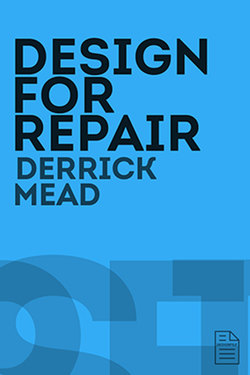Описание книги
Repair is a design constraint and an outcome of product design. It’s also a practical activity performed—or not—on designed objects. Similar skills and understanding are required to design and fix things well, but these shared capacities are applied to very different practical ends. Both agents, the designer and the repairer, seek to solve similar problems, but from opposing starting points, with different goals and limitations. Holistic, empathic thinking is key from either vantage; empathy for the user as well as the object is vital. Design for Repair investigates the historical and current state of repair in material culture as it applies specifically to product designers. The economic, technical, and psychological limitations to making things more repairable are explored, with the electric toaster taken as an example. The repairable products of several designers operating under special contemporary conditions are examined in detail, and the implications that a more repairable material culture might have for issues including personal agency, macro- and microeconomics, and the environment are considered.
